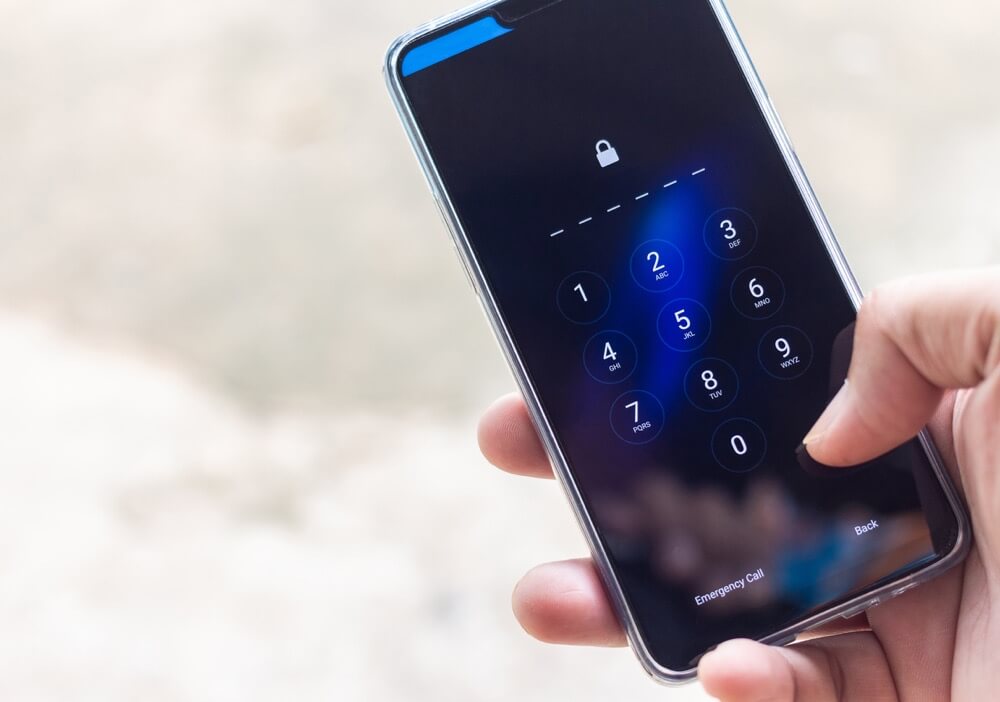
Can police search your cell phone?
Cell phones contain a considerable amount of evidence of crime.
However, they can also carry information that could lead to your exoneration.
For this reason, cell phones are sought for evidence by law enforcement more than ever.
Below, we detail the situations where the police can search your phone, and when they can’t.
Charged or under investigation for a crime? Interested in challenging the validity of a search? Request a free consultation now.
Can Police Search Your Cell Phone? There’s a Catch
Like a home search, police can (and will) search your cell phone.
Additionally, I’ve also seen cell phone evidence used in both assault and fraud cases.
In these cases (and many others), a police cell phone search is extremely common.
They need to be properly evaluated, as an unlawful search can result in a lesser sentence or even dropped charges.
There is an overwhelming amount of potential evidence that can be recovered from a cell phone, including:
- text messages
- photos/videos
- call logs
- contact information
- web search history
- social media posts and messages
Charged or under investigation for a crime? Interested in challenging the validity of a search? Request a free consultation now.
Search Warrant
A search and seizure is usually permissible as a, “search incident to arrest.”
This is an exception to the requirement of obtaining a search warrant, which allows the police to search an area immediately surrounding the arrested individual.
Under these circumstances, a phone’s exterior can be examined without a warrant.
Police can seize and secure a phone to prevent destruction of evidence before obtaining a warrant.
However, the police need a search warrant before they can search the data stored in the phone, or in the “cloud” connected to the phone.
The U.S. Supreme Court upheld this in their ruling of Riley v. California.
Charged or under investigation for a crime? Interested in challenging the validity of a search? Request a free consultation now.
Riley vs. California
In 2014, Riley was stopped for a traffic violation.
This eventually led to his arrest on weapons charges.
During the arrest, a police officer seized a cell phone from Riley’s pants pocket.
Then, the officer, without a warrant, accessed information contained on the phone.
During his warrantless search, he noticed a term repeatedly used by a known street gang.
Further investigation of the phone uncovered photos that were eventually used to charge Riley with a shooting that occurred a few weeks prior.
However, the U.S. Supreme Court held that without a warrant, the police can’t search digital information on a cell phone seized from an individual during an arrest.
The search incident to arrest does not extend to the data contained within, or accessed by, a cell phone.
Charged or under investigation for a crime? Interested in challenging the validity of a search? Request a free consultation now.
What The Police Can’t Do
Even if the cell phone is unlocked, police can’t require a person to provide the passcode.
However, what if the phone is locked?
Can the police force you to give the passcode with a warrant?
The answer is a strong no.
[irp posts=”8130″ name=”What Can Make A Search Warrant Invalid and What To Do During A Search”]
Providing the passcode may lead to incriminating evidence.
Therefore, the Fifth Amendment provides the right not to make that statement.
Charged or under investigation for a crime? Interested in challenging the validity of a search? Request a free consultation now.
Password Security
Law enforcement can sometimes access phones with data encryption and password protection with software designed to crack the code.
However, this software has limits.
The more sophisticated the phone’s encryption and number of password digits, the harder it is to crack the code.
Six digit passwords with encryption software are almost impossible to crack, even by law enforcement.
Facial ID and Fingerprint Security
On the other hand, facial recognition is easier to crack.
Police can use photos of the owner to access a phone encrypted by facial ID software.
Fingerprint security is also easy to crack if your fingerprints are already in the system.
Cell Tower Information
Cell phone companies retain the history of what cell phone towers are “pinged” by a phone.
When a phone is on, it’s always looking for a connection to the nearest cell phone tower.
This is regardless if a call is outgoing or not.
Stored by the cell phone providers, this signal connection is subject to a subpoena.
Therefore, a search warrant for a phone isn’t necessary.
Courts have held that, unlike a personal phone, people don’t have the same level of privacy in cell phone towers.
Police can use this information to pinpoint the location of the phone.
Additionally, when the phone (and presumably the owner of the phone), moves from one location to another, the cell phone tower data can track those movements as well.
Charged or under investigation for a crime? Interested in challenging the validity of a search? Request a free consultation now.
If You’re Under Investigation, Contact A Criminal Defense Attorney
As a criminal defense team with decades of experience, I can attest that police and prosecutors constantly seek cell phone evidence for their cases.
If a person wants to keep their phone content private, the best advice is to use sophisticated data encryption and a six digit passcode security protection.
However, people don’t usually expect the police to search their phone, which makes it easy for police to search one without a warrant.
If the police took your phone and you’re under investigation for a crime, you need an experienced and proven criminal defense attorney now more than ever.
Charged or under investigation for a crime? Interested in challenging the validity of a search? Request a free consultation now.
[/fusion_text][/fusion_builder_column][/fusion_builder_row][/fusion_builder_container][fusion_global id=”14033″]
